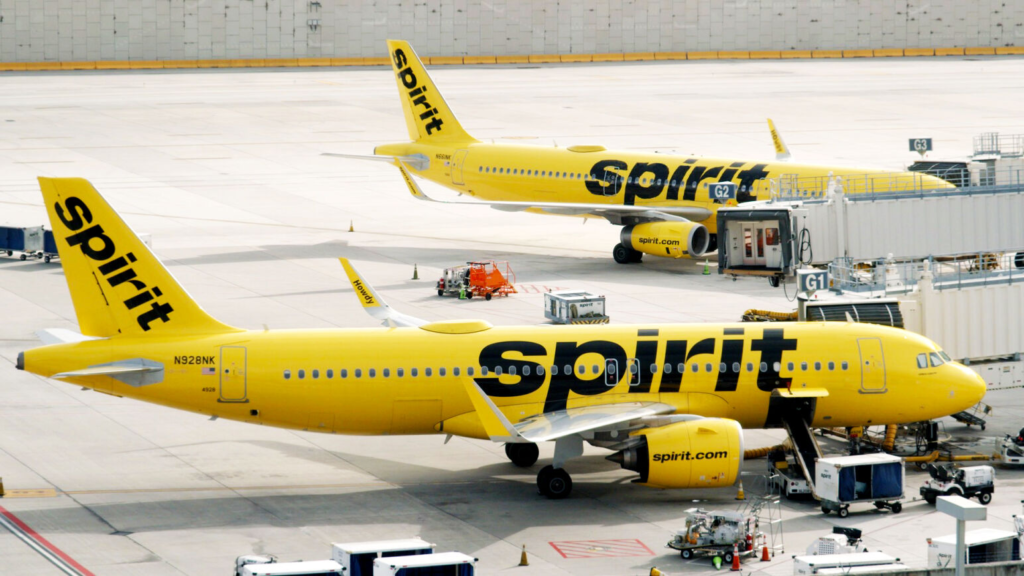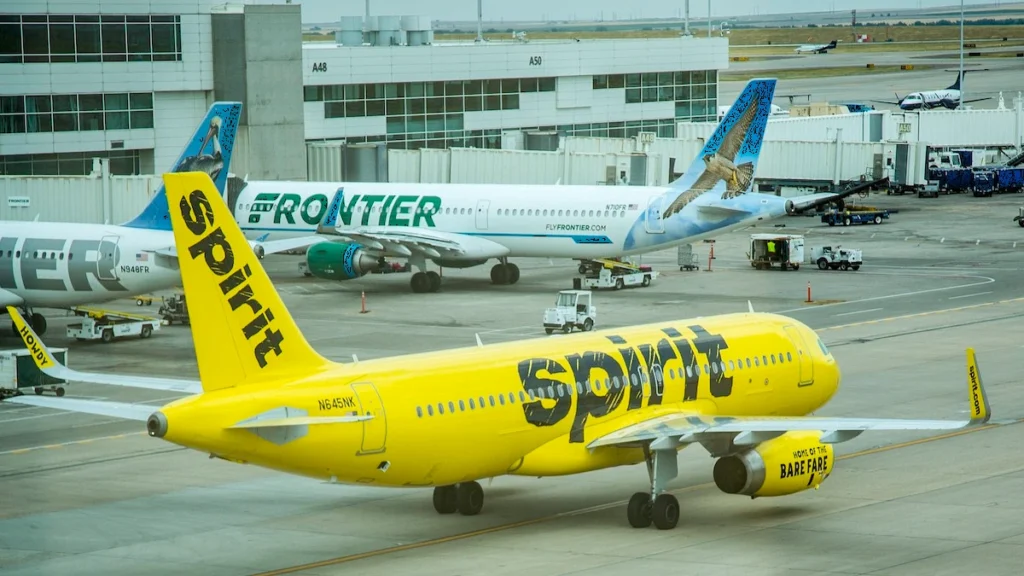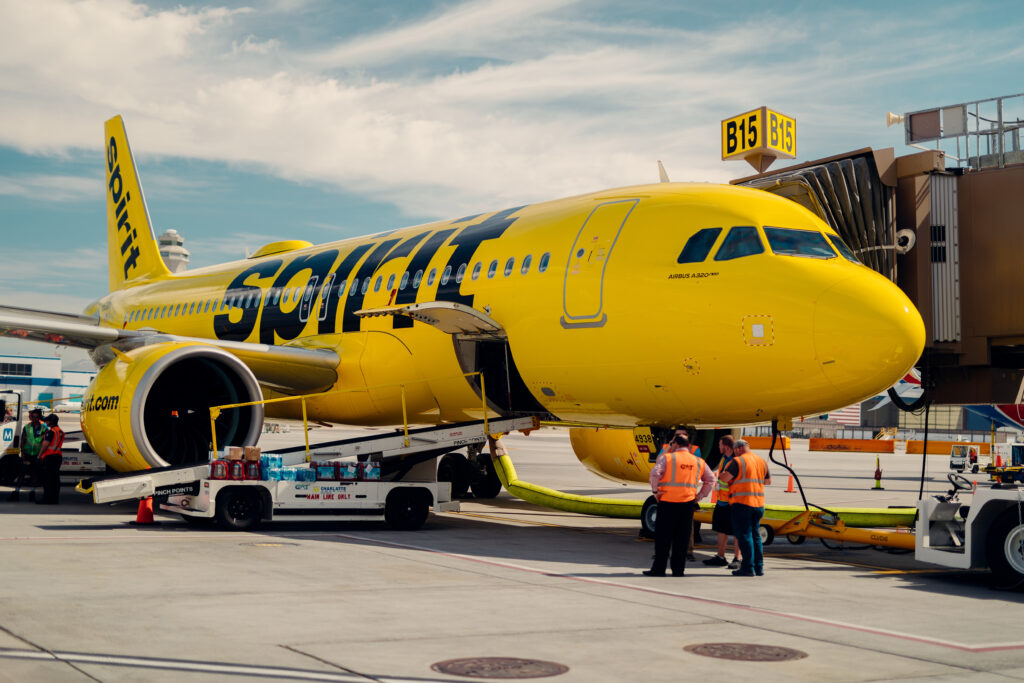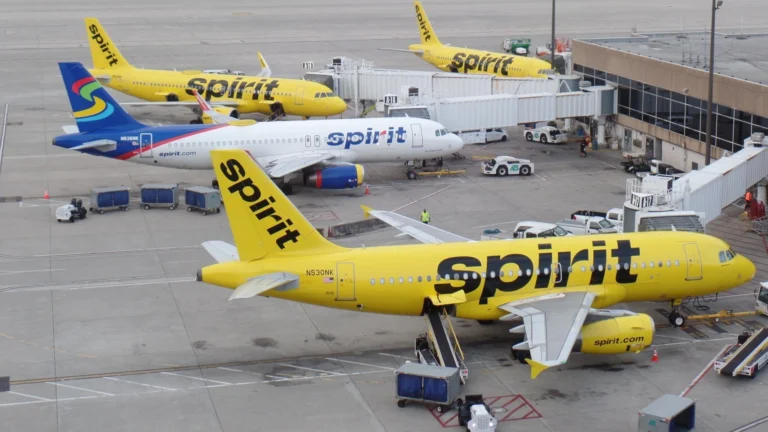FLORIDA- Ultra low-cost carrier, Spirit Airlines (NK) has secured a $519 million deal with GA Telesis to sell 23 of its older Airbus A320 family aircraft.
The transaction emerged through a Securities and Exchange Commission filing on October 24, revealing Spirit’s strategic move to strengthen its financial position with an expected $225 million boost to liquidity.

Spirit Airlines Sells 23 A320
The sale encompasses both A320ceo and A321ceo aircraft variants, transferring ownership to GA Telesis, a Florida-based aviation aftermarket specialist renowned for its component sales operations.
This fleet reduction arrives as Spirit Airlines grapples with consecutive unprofitable quarters, sparking industry speculation about potential financial restructuring.
Market observers have noted growing discussions about a possible acquisition by competitor Frontier Airlines (F9), marking a critical juncture in Spirit’s corporate trajectory.
Frontier and Spirit Airlines operate on very similar ULCC models and they can easily streamline their narrowbody Airbus fleet.
Recently, David Neeleman, JetBlue Airways’ founder, condemned Spirit Airlines’ decision to abandon its Frontier Airlines merger for JetBlue’s failed bid. Neeleman, speaking to the Washington Post, identifies this choice as a critical strategic error in airline consolidation efforts.

Fleet Restructure and Network Cuts
Spirit Airlines projects severe capacity reductions across its network, with third-quarter capacity already declining 1.2% compared to previous year levels. The airline anticipates a more dramatic 20% capacity decrease in the fourth quarter, followed by projected mid-teens percentage declines throughout 2025.
Multiple factors drive these capacity reductions. The recent sale of 23 aircraft to GA Telesis impacts scheduled service availability. Pratt & Whitney’s geared turbofan engine issues continue to ground more Neo aircraft than initially expected.
Spirit plans to retire its remaining A319ceo fleet, while simultaneously integrating six new A321neo aircraft scheduled for 2025 delivery.
The ultra-low-cost carrier has identified $80 million in annual cost-reduction measures, slated for implementation in early 2025. These cuts will primarily stem from workforce reductions aligned with decreased flight volumes, reflecting Spirit’s adaptation to reduced operational capacity.

Deep Trouble
Spirit Airlines has implemented extensive workforce reductions, including pilot furloughs while deferring new Airbus aircraft deliveries amid ongoing cash flow challenges.
The airline’s transformation efforts, however, show promising results, with third-quarter adjusted operating margins exceeding initial projections due to stronger-than-anticipated revenue performance.
The carrier actively engages with creditors to restructure debt obligations due in 2024 and 2026. Recent developments, including a successful extension of repayment deadlines and reported merger discussions with Frontier Airlines, have triggered significant gains in Spirit’s stock value.
Spirit has launched strategic initiatives targeting premium customers, aligning with broader industry trends among U.S. discount carriers. These changes include revised fare structures, enhanced seating options, and the elimination of most supplementary fees, marking a shift in the airline’s revenue strategy.
Financial projections indicate Spirit will maintain substantial liquidity exceeding $1 billion by year-end, encompassing cash, equivalents, and short-term investment securities.
The airline plans to provide comprehensive details about its third-quarter performance during its upcoming earnings call in mid-November.
Stay tuned with us. Further, follow us on social media for the latest updates.
Join us on Telegram Group for the Latest Aviation Updates. Subsequently, follow us on Google News

